In a world where distractions lurk around every corner, keeping track of goals can feel like herding cats. But what if there’s a way to turn that chaos into a well-oiled machine? Enter the routine for goal reviews—a game changer that transforms goal-setting from a wish list into a powerful progress tracker.
Table of Contents
ToggleImportance Of Goal Reviews
Goal reviews play a pivotal role in achieving success. Regular evaluations foster clarity and direction, ensuring that one remains focused amid distractions.
Enhancing Accountability
Goal reviews enhance accountability by reinforcing commitment. Individuals take ownership of their tasks, leading to increased motivation. They can discuss progress with peers or mentors, which creates external pressure to meet obligations. Consistent reviews provide a structure for sharing successes and challenges. A scheduled review routine builds a habit of reflection, making goals feel more tangible. As accountability strengthens, individuals become more driven to meet their objectives.
Measuring Progress
Measuring progress serves as a key aspect of goal reviews. Regular checks reveal what is working and what needs adjustment. They provide numerical indicators that quantify achievements, allowing for data-driven decisions. When progress stalls, identifying obstacles becomes easier. Tracking metrics over time highlights trends, enabling adjustments to strategies. Clarity about milestones and timelines increases motivation. Frequent reflection leads to a deeper understanding of personal growth, encouraging continued effort.
Establishing A Review Routine
A structured review routine forms the backbone of effective goal management. Regular evaluations not only clarify progress but also align actions with objectives.
Frequency Of Reviews
Monthly, weekly, or bi-weekly reviews serve different purposes. Monthly reviews allow for comprehensive assessments, focusing on long-term trends. Weekly reviews cater to short-term goals, offering opportunities for timely adjustments. Bi-weekly reviews blend both approaches, balancing depth and frequency. Choosing the right cadence ensures accountability while maintaining momentum. Consistently tracking outcomes creates patterns that inform future strategies. Regular engagement with goals enhances commitment, reinforcing ownership and promoting a proactive mindset. Tailoring the frequency to individual preferences or project demands optimizes effectiveness.
Setting A Dedicated Time
Scheduling a specific time for reviews boosts consistency. Consistency eliminates distractions and elevates focus. Allocating time in the calendar transforms reviews into non-negotiable appointments. Morning or evening slots work well, as they set the tone for the day or provide reflection space. Creating a dedicated environment mirrors intention and seriousness. Peaceful locations enable deep thinking and unhurried contemplation. Integrating reminders ensures reviews do not fall by the wayside, allowing individuals to anticipate these sessions as valuable checkpoints. Prioritizing established routines fosters a habitual practice that drives success.
Components Of An Effective Review
Effective goal reviews incorporate specific components that enhance the overall process. These elements serve to maintain focus, encourage accountability, and facilitate personal growth.
Reflection On Goals
Reflection on goals involves taking a step back to assess alignment with personal aspirations. Evaluating progress gives insight into achievements and highlights areas needing improvement. Questions directed at specific goals can foster deeper understanding and clarity, such as, “What objectives have I accomplished? What setbacks have I encountered?” Regularly considering these aspects reinforces commitment, ensuring goals remain relevant and motivating. Documenting thoughts during reviews aids in tracking emotional responses and clarifying thoughts, serving as a foundation for future evaluations.
Adjusting Strategies
Adjusting strategies relies on insights gained through measurement and reflection. When examining progress, identifying successful methods becomes crucial. Noticing patterns such as consistent challenges or opportunities for growth allows for strategic pivots. Tailoring approaches ensures individuals remain on track and aligned with their objectives. Implementing feedback from previous reviews enhances adaptability, allowing for prompt modifications in tactics. Utilizing data on productivity and performance serves as a guide for informed decision-making, fostering a proactive approach to achieving goals.
Incorporating Feedback
Incorporating feedback is essential in refining goals and enhancing overall effectiveness. Utilizing self-assessment techniques helps individuals evaluate their progress and identify areas for improvement.
Self-Assessment Techniques
Reflecting on personal progress fosters a deeper understanding of one’s goals. Reviewing achievements and obstacles provides clarity on what strategies work best. Journaling thoughts during the review process allows individuals to document their feelings and insights, making trends easier to identify. Rating performance on a scale can quantify progress, transforming subjective feelings into actionable data. Setting aside time for contemplation ensures thoughtful review sessions lead to meaningful adjustments.
Seeking External Input
Engagement with peers or mentors opens new perspectives on goal attainment. Asking for feedback creates opportunities for constructive criticism, which can highlight blind spots. Participating in accountability groups offers shared experiences and strategies that enhance motivation. Inviting trusted individuals to evaluate progress provides additional insights into personal performance. Regularly discussing goals with others cultivates a sense of community, reinforcing commitment to ongoing improvement.
Tools And Resources
Utilizing specific tools can streamline the goal review process. Valuable resources exist to enhance tracking, reflection, and accountability.
Apps For Goal Tracking
Numerous apps provide effective solutions for goal tracking. Trello enhances organization through boards and lists, promoting clear project management. Asana facilitates team collaboration, allowing users to set tasks and monitor progress. Notion integrates note-taking and task management, perfect for those who enjoy customization. Microsoft To Do serves as a straightforward task manager, helping individuals prioritize daily activities. These applications encourage regular updates, making goal attainment measurable and motivating.
Journaling For Reflection
Journaling offers a powerful tool for reflection during goal reviews. Writing thoughts fosters clarity and reinforces accountability. Individuals can document feelings, progress, and insights, creating a comprehensive record over time. Prompts can guide reflections, assisting in evaluating alignment with aspirations. Consistent journaling cultivates mindfulness, revealing patterns that might otherwise remain unnoticed. This practice enhances self-awareness, enabling users to adjust strategies effectively. Seeking inspiration from reflection enhances commitment, motivating ongoing progress toward goals.
Conclusion
Establishing a routine for goal reviews is essential for sustained progress and personal growth. This structured approach not only enhances accountability but also fosters clarity in one’s objectives. By regularly assessing goals and making necessary adjustments, individuals can stay aligned with their aspirations and adapt to changing circumstances.
Incorporating feedback and utilizing tools for tracking can further streamline this process, making goal attainment more measurable and motivating. Ultimately, a consistent review routine transforms goal-setting from a passive exercise into an active journey towards success, empowering individuals to take charge of their paths and realize their full potential.








